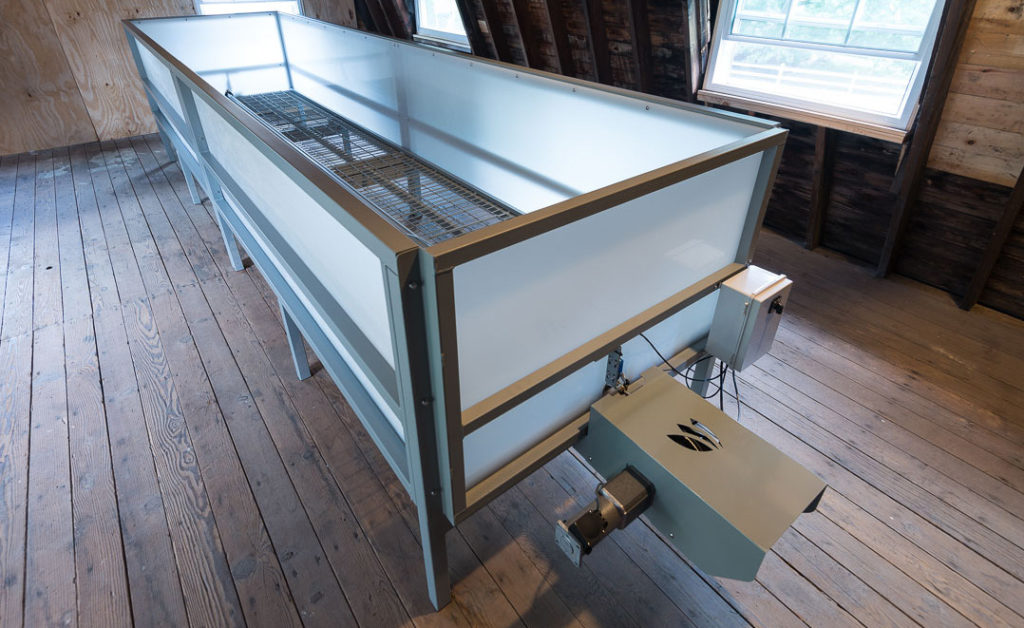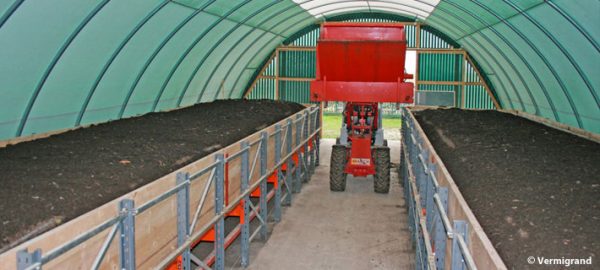Improving soil health and diverting waste from landfills are two concepts that get a lot of traction these days. While many folks are vermicomposting and making a respectable side income, there is also a surge in interest for stand-alone small businesses to serve the needs of agriculture and municipalities.
Some examples of potential to serve new local and regional markets:
- Fruit production is big business in many regions, yet vermicompost use is limited among just a few early adopters. Orchards and vineyards replace root stock periodically, and many new acres are added each season. One of the greatest benefits of vermicompost use is for establishing new plants.
- Potato farming is huge in regions like the Northwest and the Great Lakes region, and traditional cultivation methods have depleted soils of micronutrients and biology. Now, some of the prominent growers are getting serious about using compost and vermicompost to restore the balance in their soils.
- Consumers are demanding local and ‘healthy’ food sources, as seen in the growing popularity of farm-to-table enterprises like CSAs, farmers markets and school food programs.
- Medical marijuana production will increase significantly in coming years as states liberalize and legalize its use. Growers are particular about their soil media to optimize plant health, and vermicompost is commonly specified in their mixes.
- Landfill capacities are limited and cities have a responsibility to find alternatives for waste stream management. Organic materials like pre-consumer food waste will be prohibited.
- Livestock manures are a source of surface contamination, and dumping is being curtailed in some regions. Not all of it can be spread over pastures, and must be disposed by other means.
- These trends all support an increasing need for vermicomposting. Today we are only scratching the surface of an untapped market!

Despite the obvious needs, the solutions that vermicomposting offers are not well known by the general public. New VC businesses will need to develop their local markets and customers, and this means placing a high priority on educating and raising awareness of vermicompost and its benefits.
Which business models will prove most successful for the next generation of VC operations? Today most VC producers occur in one of two forms – small ‘hobbyists’ generating a few thousand dollars in sales, or massive operations approaching a million dollars of production annually. In between, there is an opportunity for mid-size operations having efficiency and flexibility to serve and adapt to local markets.
What do these mid-size operations look like? Beyond a few features they will likely have in common, they will adapt to the markets they serve – doing that will take some creativity, fast pivoting, and basic trial-and-error.

Small Business Production Using CFTs
Big vermicompost operations may have economies of scale to their advantage. But their size requires access to very large markets, typically over large geographic areas. This presents two problems: shipping over long distances and product shelf life.
In contrast, smaller nimble producers can locate near their customers, ideally in a central location to serve a number of them by milk-runs. Freshly harvested product has the highest quality, and it can be delivered just-in-time as needed – a competitive advantage.
My idea of the perfect setup is two parallel rows of CFT’s with a central aisle in a long outbuilding such as a quonset, hoop house or long barn. All work is done in the central aisle and at one end, managing the material flow from input to finished product. A technique resembling this approach has been used at a few sites in Europe.
Such a facility would include processes for pre-composting, screening, packaging, watering and in some climates soil heating. Standardized operating procedures and recipes would play a critical role in product consistency and analysis. The length or number of paired rows could be adjusted to match capacity to increasing demand.
Many farmers and businesses would already have access to suitable facilities and equipment, greatly reducing startup costs. Such an operation could be full time or part time, manned by an owner-operator or site-managed. It offers potential for a recurring income stream with a modest capital investment.
CFT’s offer the unique advantage over other methods of reducing labor. Varying levels of automation can be applied to achieve an optimum balance between the costs for capital and labor. A CFT-based operation can work as a complement to an existing farm or business and generate profit and steady cash flow.

Image by Alfred Grand via Twitter @VERMIGRAND
Agri-Tourism and CFTs
In addition to selling vermicompost and possibly worms, a VC facility has an opportunity to generate additional revenues through agri-tourism. Our urbanized lifestyles have led to an increasing fascination with agricultural practices, and those farming operations that have the ability to entertain and educate families and groups in a clean and safe manner can take advantage of that. Agri-tourism is nearing $1 billion in annual revenue in the US today.
We can open our doors to the public, to learn about vermiculture and vermicomposting. Families and groups can tour the worm facilities, learn how waste is turned into something valuable, learn a bit about soil life, watch a trommel separator in action, handle some of the livestock, and take a bag of vermicompost home. Surely there’s even a vermi-gift shop at the end of the tour!
Inviting gardening clubs, media, and leaders in academia to a vermicomposting operation is a high-impact way to use social influence to raise awareness of our product and services.
In the process, we bring an appreciation for vermicompost into the mainstream – and may well generate more income in peak seasons than the sale of the vermicompost itself!
Opportunities Abound
While demand for vermicompost is growing, the industry faces a few challenges. Firstly, best practices are not well known since the established large operators keep proprietary information they’ve learned over years of experience as trade secrets.
Secondly, the lack of product standards results in a wide disparity in product consistency and quality. This leaves much of the public to cast a doubtful eye at vermicompost products. This again needs to be overcome with excellent products and education.
But the entrepreneurs who are first to overcome these information hurdles and quickly develop their own best practices and standard operating procedures will have a competitive advantage over others. Coupled with a solid marketing plan that teaches the benefits of vermicompost to a mass audience, a well-run small business armed with efficient CFTs can generate healthy profits.


